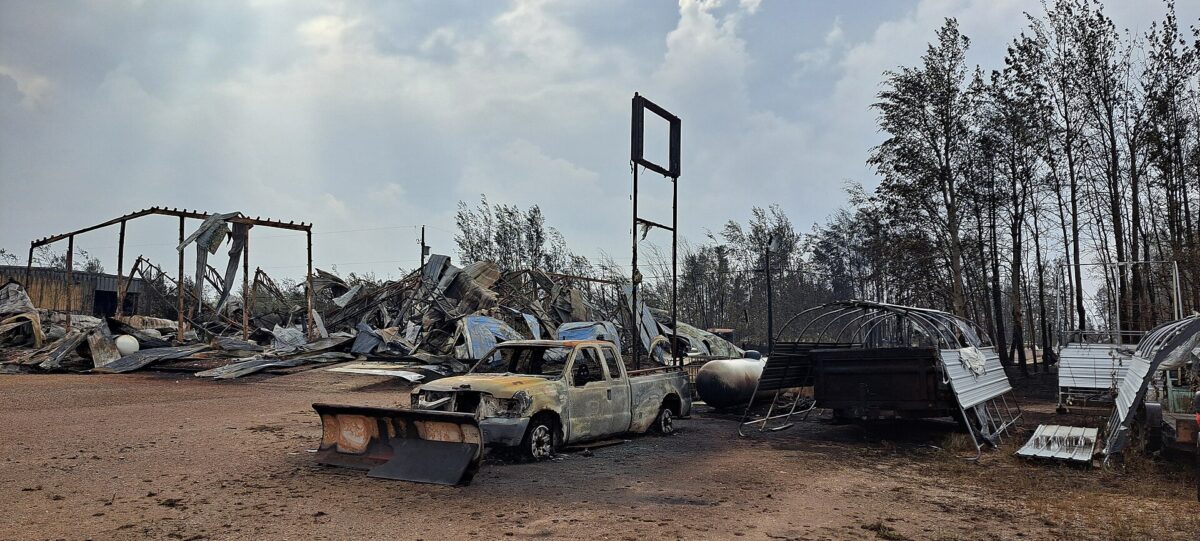At the end of the film Don’t Look Up — in which a comet hurtling toward Earth serves as a blunt metaphor for the climate crisis — astronomy professor Randall Mindy (played by Leonard DiCaprio) says, “We really did have everything, didn’t we?”
It’s true. This spinning ball of earth, water and fire provides everything our species needs to survive and live relatively well. It’s up to us, though, to make sure we honour its generosity by not taking too much or destroying that which gives us sustenance and life. In that regard, we’re failing.
Many people, especially in Indigenous societies, appreciate the gift we’ve been given for the brief time we each have on this miraculous planet and recognize our responsibility to respect it and accept its limits. But the colonialist perspective is to take what you can get, any way you can and damn the consequences. It sees nature — including other people — as a storehouse of “resources” to be exploited for the benefit of the powerful.
For almost all our history, humans have lived in relative harmony with their surroundings, in tune with the intricately interconnected cycles that make the planet habitable: water, carbon, nitrogen and more. But the emergence of social and economic systems that put the individual above society and profit over planet — along with the discovery that solar energy stored and compressed over millennia in coal, oil and gas could power machines beyond our imagination — upset this delicate balance.
We’ve stripped Earth of massive amounts of stored carbon, burned it in factories and automobiles and spewed it into the atmosphere. We’ve denuded forests and wetlands, altering the way water cartwheels around the world through aquifers, rivers, lakes, oceans, evaporation, clouds and rain. We’ve collected nitrogen and spread it on fields to make food crops grow faster, upsetting soil ecosystems and creating ocean dead zones from runoff.
Together, these actions are heating the planet to dangerous levels, leading to increasing extreme weather-related events, water shortages, a mass extinction crisis and millions of people fleeing inhospitable conditions.
It’s not too late to turn things around, but every delay makes the situation more precarious. Had we heeded scientists when they started raising alarms, we’d be well on our way to cleaner air, better health and a stable climate by now. As in Don’t Look Up, some people recognize the threat and work to address it, some claim the warnings are “alarmist,” others see a way to profit from the crisis and some deny it altogether.
Because carbon dioxide remains in the atmosphere for hundreds of years, whatever amount we emit will have consequences for decades to come.
It’s astounding that so many people can look at the beauty around them and think it’s okay to wreck it for the sake of some illusory short-term payoff. It makes no sense that, with such relatively short life spans, some people choose to spend their time inflicting misery on others and damaging their surroundings.
We really do have everything! With common sense, evidence, action, love and compassion, we could continue to have it all. Instead, people fight over human-created artificial boundaries, divisive mythologies and ideologies. We allow the powerful and wealthy to put selfish interests above societal well-being. Many people, blinded by corporate interests, pro-industry media and lack of critical thinking skills, refuse to take necessary actions they think might inconvenience them.
We’re told that caring for the planet will be too much of a burden on the economy. Meanwhile, the costs of failing to act quickly and decisively are accelerating.
It’s often difficult to know what one person can do, especially when confronted with so many challenges, from personal to planetary. But for issues like the climate crisis, the onus to resolve it shouldn’t be on the individual. Governments and industry — those most responsible — have the obligation and power to set us on a healthier course.
Still, it’s up to each of us to do what we can, whether it’s making changes in our lives and habits, joining with others to protest and push for political change, calling out the lies and propaganda, talking to friends and family or voting for those who make our survival a priority.
Keep “looking up.” Refusing to do so only intensifies the problem.
David Suzuki is a scientist, broadcaster, author and co-founder of the David Suzuki Foundation. Written with David Suzuki Foundation Senior Writer and Editor Ian Hanington. Learn more at davidsuzuki.org.



